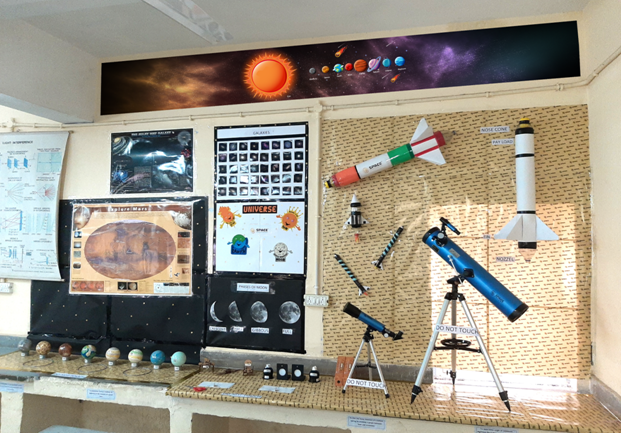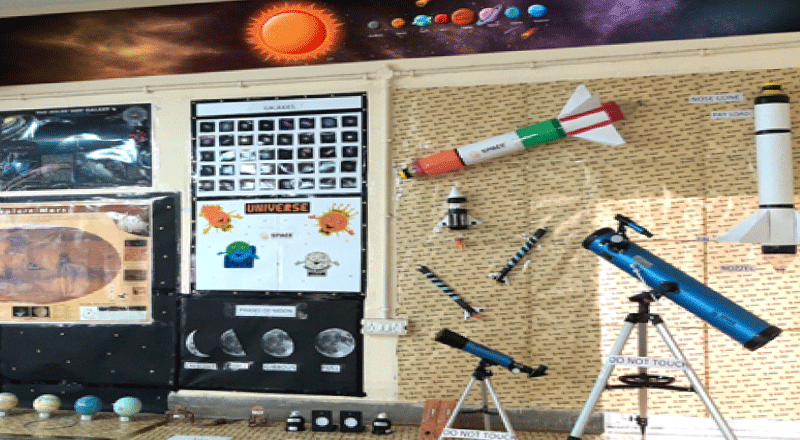Eight asteroidsdetected by sixteen students of Jawahar Navodaya Vidyalayas, under the Khagolshala Asteroid Search Campaign 2021 were conferred the “Provisional Status” by the International Astronomical Search Collaboration. Khagolshala Asteroid Search Campaign or KASC trains students of Jawahar Navodaya Vidyalayas to detect asteroids. The campaign is an initiative of the Office of Principal Scientific Adviser, Government of India,and SPACE Foundation.

A Khagolshala. Image courtesy: SPACE Foundation
The International Astronomical Search Collaboration (IASC) housed at the Hardin-Simmons University sent their wishes confirming the provisional discoveries. While it will be years before the asteroids are documented and the discoverer can name them, the successful detection and a grant of the provisional status to eight asteroids is a huge feat for the young students. The entire process also brings multiple opportunities for students to interact with space scientists, astronomers, and astronauts.
Here’s a list of the steps of the preliminary detection to the naming of an asteroid.
Preliminary detection: The first, original observation of a new asteroid.
Provisional status: The asteroid must be observed a second time within the next 7-10 days. If it is, then the detection is changed to provisional status by the Minor Planet Center (MPC).
Cataloguing an asteroid: Asteroid detections with provisional status are maintained in the MPC database for many years until there have been a sufficient number of observations to fully determine the orbit. That process typically takes 6-10 years, at which point the asteroid is numbered and catalogued by the International Astronomical Union.
Naming an asteroid: Numbered asteroids can be named by their citizen scientist discoverers.
Students get access to the real-time data from the ‘PANSTARRS’ (The Panoramic Survey Telescope and Rapid Response System Telescope), located in Hawaii. They access these images and are trainedin advanced data analytics to detect asteroids.This accounts for an invaluable real-time research experience.The campaign contributes to theNASA Near-Earth Object (NEO) Program at the Jet Propulsion Laboratory (Pasadena, CA).
List of the provisional discoverers in KASC 2021:
- 2021 BA11 P11cbE7 B. Dash, S. Singh JNV Anuppur -1 India Provisional 01/16/21 NEH5432
- 2021 AW20 P11bLbH A. Tripathi, B. Dutta JNV Anuppur -2 India Provisional 01/09/21 SBR0052
- 2021 6 P11dgIS I. Shukla JNV Sonebhadra India Provisional 02/12/21 SSI1234
- CA25 P11cCXf S. Singh, A. Sharda Team JNV Una – 1 India Provisional 02/07/21 CVR2802
- 2021 CF30 P11cCXs P. Nandan, H. Sameer Team L. Brothers India Provisional 02/07/21 PRY2021
- 2021 CB18 P11cJ2z A. Kumar, S. Kumar Team Curious Mind India Provisional 02/08/21 AKS9878
- 2021 CY25 P11dhTD S. Kurre, A. Sahu Team Shubhash India Provisional 02/12/21 OOM0000
- 2021 CS23 P11dgJ4 L. Gowda Team Aryabhatta – 7 India Provisional 02/12/21 JNV0010
About SPACE Foundation:
SPACE Foundationwas established in 2001, to popularize science and inculcate scientific temperament among the masses especially students in India. SPACE is working to create citizen scientists through various programs on science and astronomy education, and innovation in India. These programs have the larger goal of fostering scientific temperament in society, especially among the youth.
About the Khagolshala Asteroids Search Campaign (KASC):
Khagolshala Asteroids Search Campaign (KASC)isthe India chapter of an international student research program that has got students involved in the search for asteroids. High-quality astronomical data sets are distributed to students for analysis and identification of asteroids. Students analyze the data using software which then leads to potential discoveries. These observations feed into the Near-Earth Object (NEO) data being compiled by NASA and the Jet Propulsion Lab (JPL).Space India has established Khagolshala Astronomy and Space Education Labs (ASELs) across 20 Jawahar Navodaya Vidyalayas to date. Space India is working with a vision to get the younger generation in the country engrossed in astronomy and space sciences; application, exploration, innovation, and research in these areas. The team at Space India works by engaging students through experimentation, observation, and analysis of the universe.





